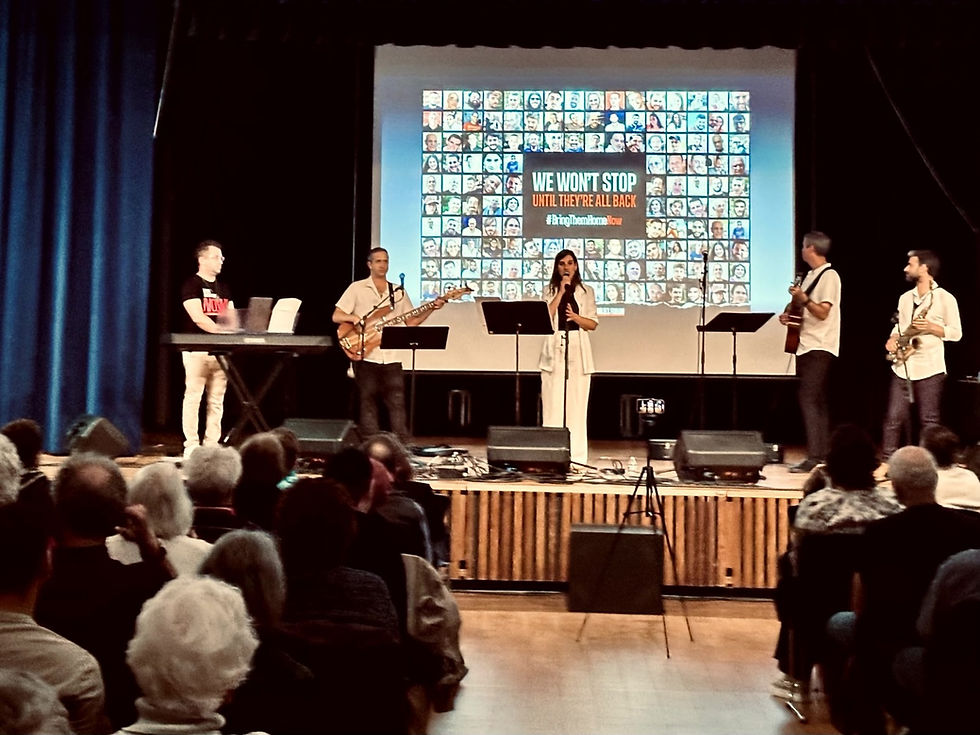New Project Invites Young Israelis to Rethink Yom HaAtzmaut in Days of War
- Phia Blumenthal
- May 26, 2024
- 2 min read
When it comes to the transition between commemorating the fallen Yom HaZikaron and celebrating Israel’s independence on Yom HaAtzmaut, always difficult but especially challenging this year, a group of young people are offering an alternative vision.
Rujum, a nationwide project created by Dror Israel, aims to facilitate communities and social justice initiatives among people aged 20-35. This year, Rujum participants came together to create a “haggadah” to mark Independence Day, a new resource that would allow the national holiday to be marked with recognition of the pain and uncertainty Israel is currently experiencing.

“The Israeli story is embedded in the transition between Yom HaZikaron and Yom HaAtzmaut - between dreams for a good society and the harsh reality, between the fractures and the desire for security, peace and welfare,” said Dor An-Eli, one of the national organizers of Rujum. “This year, the transition is more difficult and sadder. We wanted to propose coming together to mark it together, gently and sensitively.”
The creation of a “haggadah” encourages the creation of a new annual tradition of a “seder” telling the story of Israel’s independence and struggle for peace and security, instead of the Exodus story. This resource contains both texts, songs and poems dating from the founding of the state, and content written since October 7.
On Yom HaAtzmaut, Rujum hosted meetups in Tel Aviv, Petach Tikvah, Haifa, Carmiel and the Jordan Valley where young people sat together and read the haggadah, singing songs and exchanging thoughts and dilemmas about the country’s past, present and future.

The idea for this initiative was originally conceived at a series of national and local seminars starting in January, called “Dor Tkuma,” or “generation of renewal.” These conferences brought together over 200 young people from across Israel to discuss the role of the younger generation in building a new shared future, and to create a series of new social initiatives.
“We didn't choose the reality we have found ourselves in for the past six months, but nothing can take away from us the freedom to choose how to respond to this reality,” An-Eli said of the seminars. “From this place, we want to wish for ourselves and for all of Israeli society that we will be free to choose unity over division, responsibility over lawlessness, and good over evil - of which we have known so much in the last six months.”

The seminar’s topics, which were later split into work groups, included: absorption of new olim during wartime, the shaping of culture and education, and the rebuilding of the war-torn border regions of Israel, which includes a proposal for a group of young people to work and live together in the Gaza Envelope.
“Rujum is a rich program that offers a variety of possibilities for participation in large-scale social creation through community meetings, national events, initiatives and projects, seminars and leading processes of learning and creation,” reads the project’s website.



Comments